
Last February as President Putin announced its invasion of Ukraine in a chilling televised speech, the Kremlin was so confident of success that the first wave of Russian troops were ordered to bring special uniforms for the Kiev victory parade. Putin’s plans were not long in coming. as characteristically mentioned in an analytical report by the London Times.
In almost a year of war, tens of thousands of Russian soldiers have been killed, hundreds of thousands of men have fled the country to avoid conscription, and some Russian areas bordering Ukraine are under shelling almost daily. According to the British Ministry of Defense, over the past two weeks, Russian troops have suffered the highest losses since the start of the war.
Instead of triumphant speeches in the Ukrainian capital, the Times reports, Putin’s image as the supreme general has crumbled, leaving him arguably weaker than at any time during his 23-year rule. His failure to secure a quick victory cost him the respect and unquestioning loyalty of top officials, said Gennady Gudkov, a former KGB colonel and ex-deputy living in exile.
“Stupid Mistakes”
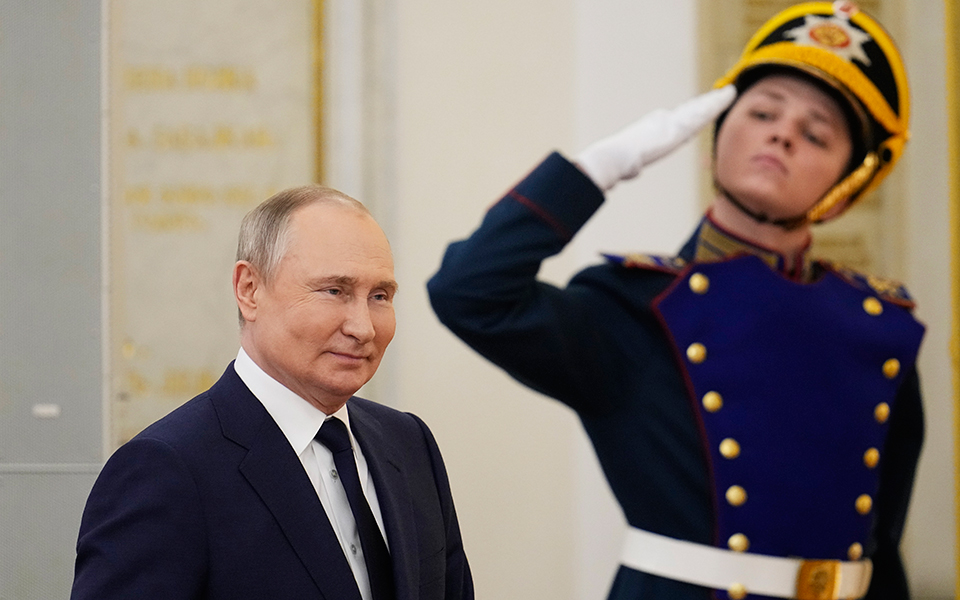
“Putin cannot run the Kremlin like he used to. I made a lot of stupid mistakes and everything from the General Staff of the Armed Forces to the leadership of the FSB [υπηρεσία ασφαλείας] to his closest aides, they understand that,” he said.
“[Οι αξιωματούχοι] they become bolder and bolder, internal strife intensifies. There is no longer the subservience to Putin that existed a year ago,” Gudkov said, referring to conversations with relatives of Kremlin figures, political aides in Moscow and unnamed Russian tycoons. “It’s a quiet rebellion against him.”
Tatyana Stanovaya, a Russian political analyst whose research focuses on the Kremlin, said that while officials have little chance of mustering the courage to directly criticize Putin, many are dismayed by the disastrous conduct of the war. “Many of them respected him,” he said. “Not anymore”.
The burden on the economy
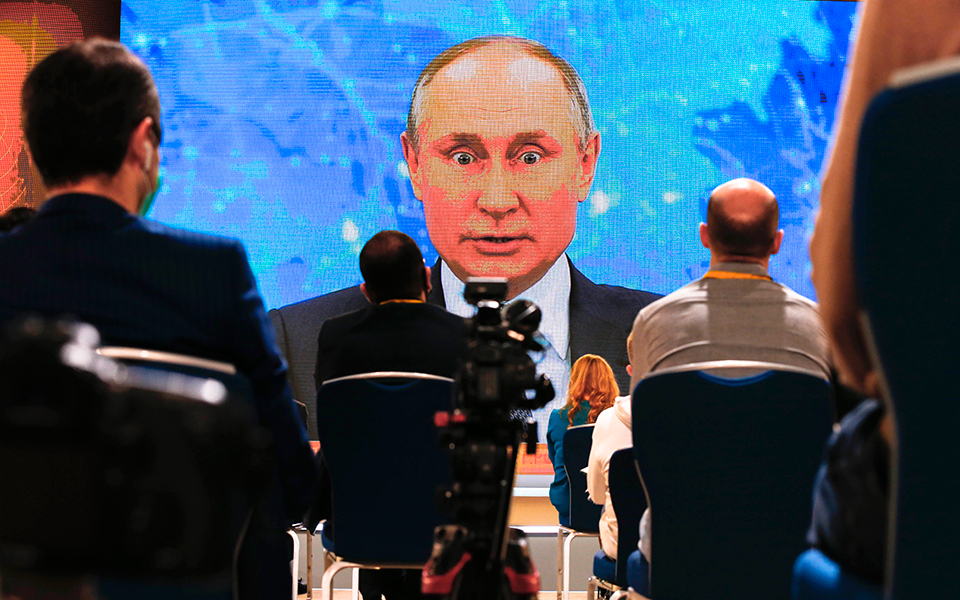
In addition to setbacks on the battlefield, the Russian economy is also suffering under the weight of Western sanctions, including restrictions on Russian oil. Last month, Russia recorded a budget deficit of 1.76 trillion. rubles (about 22 billion euros), which is the largest figure for January since Putin came to power in 2000. The sanctions have also stripped Russian elites of foreign assets, including real estate in Europe, while making it much harder for their children to attend good-famous Western schools and universities.
But Putin remains steadfast in his belief that he is fulfilling his “historic mission” to subjugate Kiev to Moscow, said Fyodor Lukyanov, head of Russia’s Foreign and Defense Policy Council, who often advises the Kremlin. It is believed that the Council was not consulted on the decision to invade Ukraine, with key decisions being made solely by Putin and a small group of hardliners.
According to Lukyanov, who moderated the discussion, despite the setbacks his military has suffered, Putin appeared to feel comfortable answering questions at a forum in late October. “He was as confident and relaxed as ever,” she said. “There was no irritation at all, no matter what questions were asked. He seems to be 200% sure that what he and Russia are doing is necessary and inevitable. That we are on the right side of history, no matter what happens.”
Lukyanov also said many Russian politicians were puzzled as to why the Kremlin had not responded “properly” to Western arms shipments to Ukraine. At the start of the war, Putin warned that Western countries trying to help Ukraine would “face the consequences more severe than they have ever faced in history.” He also threatened to use nuclear weapons to protect the occupied territories in Ukraine, which Russia considers its own.
Nuclear rhetoric
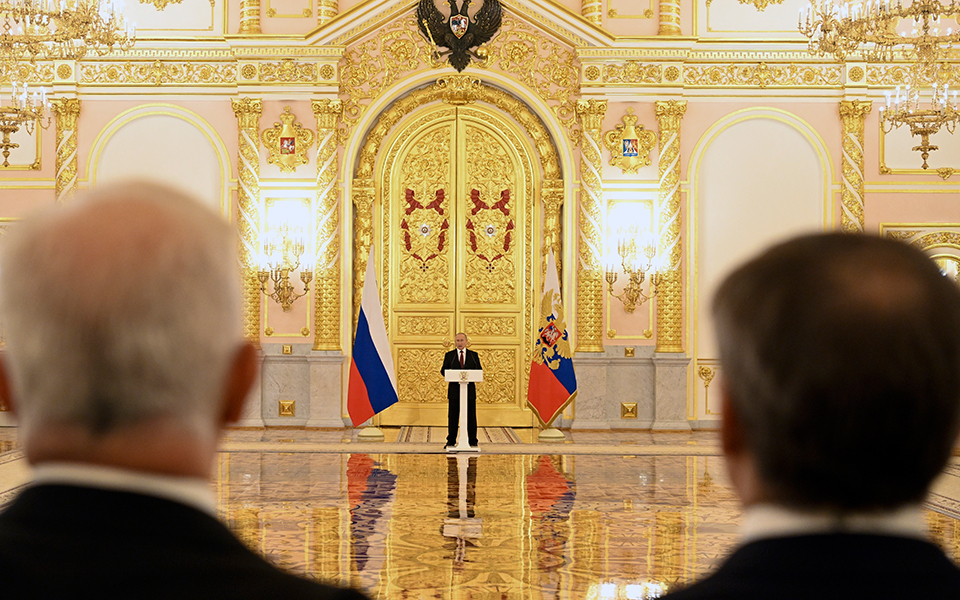
The Kremlin’s nuclear rhetoric was a key factor in the recent decision by a group of international scientists to turn the Doomsday Clock, which depicts threats to human existence, 90 seconds to midnight, closer to the 1947 founding hour. .
“Russia could respond not only with nuclear weapons, but also with massive cyber attacks or strikes on supply routes. [για δυτικά όπλα]Lukyanov said. “The problem is that the longer Russia does not respond, the more likely it is that the response must be extremely strong in order to demonstrate commitment to the goal. That it will use an absolute argument.”
Lukyanov added that suspicions that his advisers had misled Putin about the grim realities of the war were untrue. “He didn’t look like a person who doesn’t know what’s going on. He looked like he had [σωστές] information. But this information doesn’t worry him too much.”
Figure in isolation
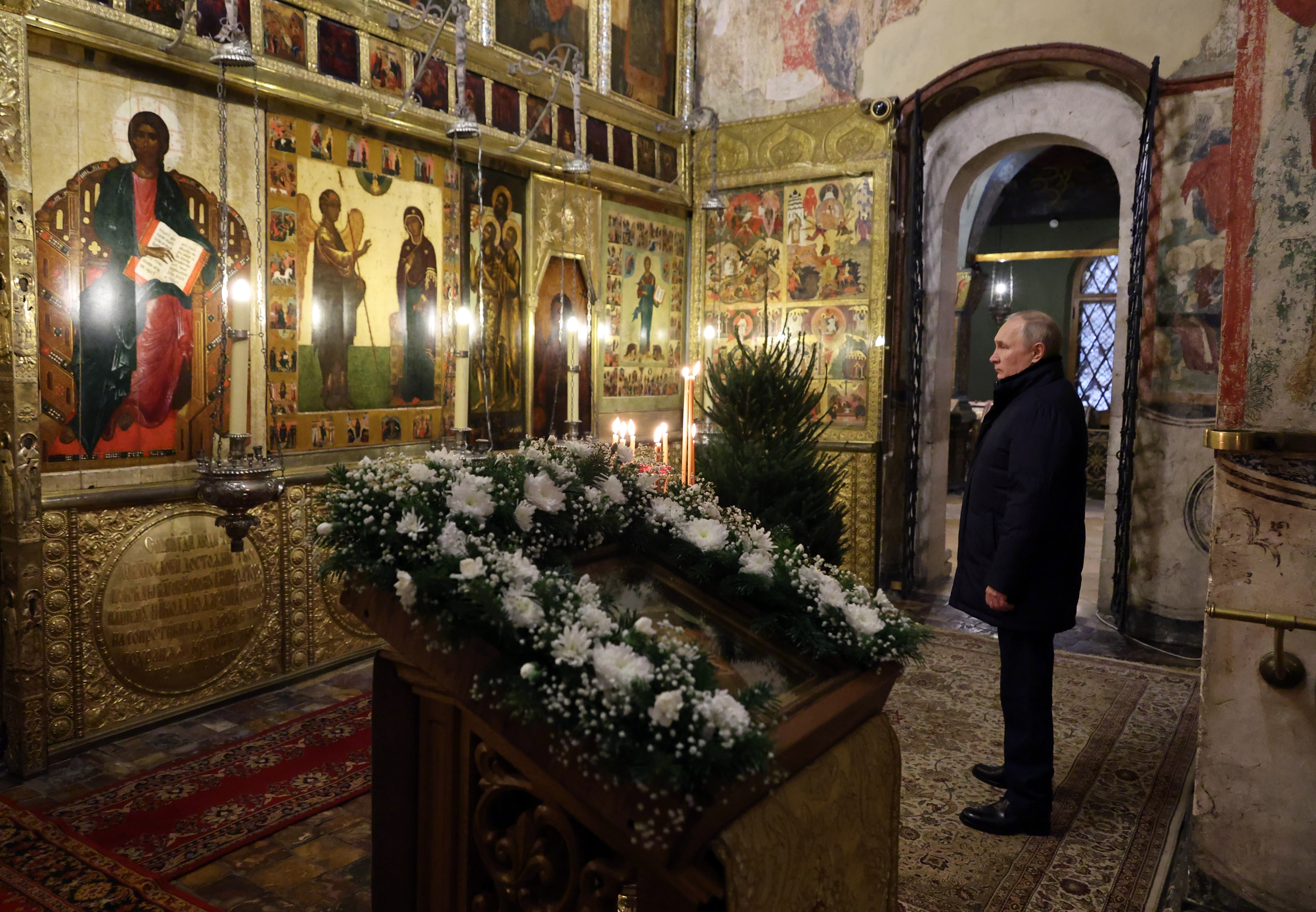
And if once he was portrayed by Russian propaganda as a straightforward man of the people, now Putin is a closed figure, the publication comments. On Orthodox Christmas Eve, he attended alone the service in the Kremlin Cathedral, the entrance to which was closed to all other believers. In December, he abruptly canceled his annual press conference and televised question-and-answer session with Russians, as well as his address to parliament. Critics say Putin is reluctant to answer tough questions about the war because he knows he can’t provide meaningful answers.
“A year later, Putin has nothing to answer the main question: “How does he see a way out of the situation he has created?” MASS MEDIA. .
“This question is being asked by generals and businessmen: Putin’s entourage does not understand the purpose of all these losses and hardships. But Putin has no answer. The silence is deafening. And it will become even stronger.”
The problem with the health of the President of Russia
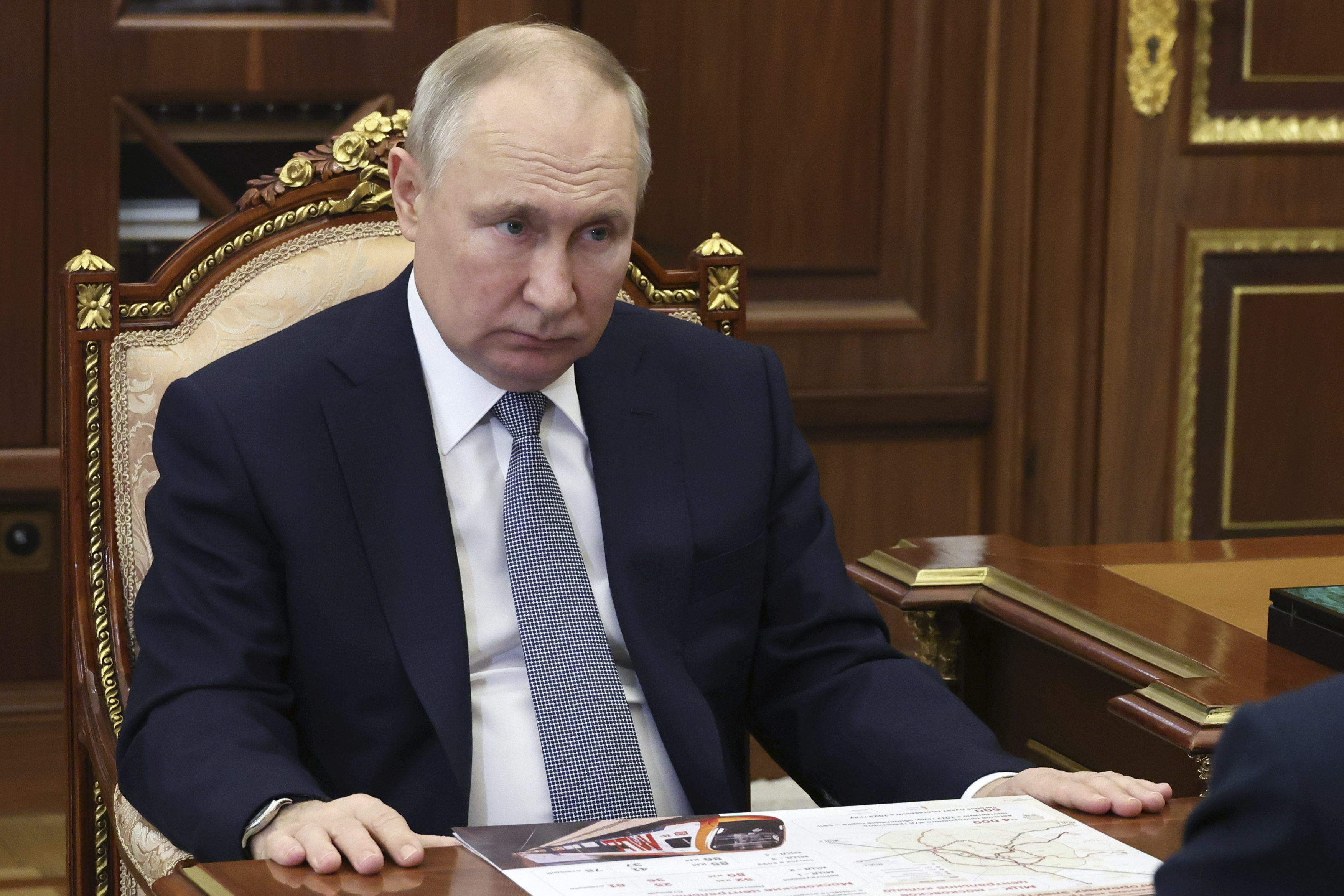
Putin spent most of the pandemic at his residences in Moscow and Sochi. Visitors had to go through disinfection “tunnels” before entering, and officials were ordered to quarantine for up to 14 days before being allowed to meet with the president. The self-isolation order is supposed to remain in place: Andrey Bokharov, the governor of the Volgograd region, did not appear in public for almost two weeks before meeting with Putin this month.
These measures are in line with ongoing rumors about Putin’s health. Ukrainian military intelligence recently told ABC News, citing unnamed sources, that the Russian leader had terminal cancer. The Kremlin insists Putin is in good health, but he has been seen limping in public and clutching the edges of tables with his right hand during negotiations.
It was reported that before the war he was examined dozens of times by an oncologist. It was also believed that he took blood baths from deer antlers, the traditional remedy of the Altai Territory in southern Siberia for a number of diseases. There are concerns about Putin’s mental state. “He reacts to the images in his head,” Gleb Pavlovsky, a former Kremlin adviser, told The Times early in the war.
During his televised New Year’s address, traditionally delivered against the backdrop of the Kremlin, Putin instead stood in front of a line of grim men in military uniforms. In his nine-minute speech, the longest for a New Year’s message, he attacked the West, accusing it of using the war in Ukraine to “weaken and divide” Mother Russia.
Secret personal life
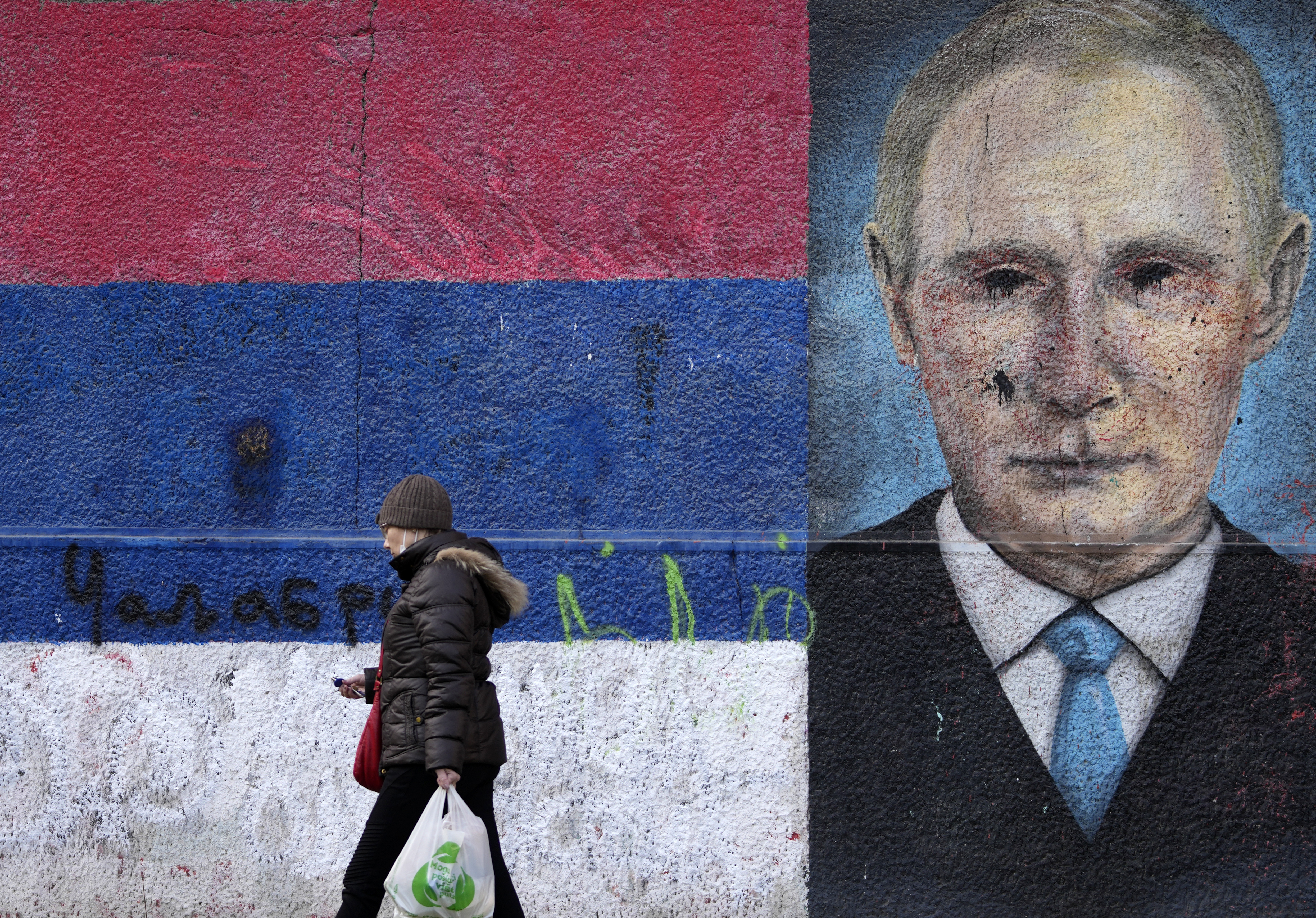
Putin’s personal life remains a mystery. Officially, he has not been married since 2014, when he broke up with Lyudmila, a former Aeroflot flight attendant. Unofficially, Putin is believed to have a long relationship with Alina Kabaeva, a former Olympic gymnast who was appointed head of a pro-Kremlin media company in 2014. Kabaeva, 39, has come under sanctions from Britain, the European Union and the United States. states. Last week, he called Russian state television a “weapon of war” comparable in power to a Kalashnikov assault rifle. “Let’s work!” she said at a media event, pinning a pro-war “Z” symbol to her black formal suit.
Putin’s two adult daughters from his marriage to Lyudmila, 37-year-old Maria Vorontsova and 36-year-old Katerina Tikhonova, have come under Western sanctions. The Kremlin has never publicly acknowledged their relationship with Putin, but the US has said there are signs that their circle has benefited from their status. Tikhonova was previously married to businessman Kirill Samalov, whose wealth skyrocketed when he became Putin’s son-in-law in 2013.
It is also believed that Putin and Kabaeva have three children, but their identities have never been confirmed. The Russian leader is also believed to have a teenage daughter named Yelizaveta from a relationship he had during his first term with Svetlana Krivonogich, a former cleaner from St. Petersburg. Krivonogich, who became rich after her relationship with Putin, also came under British sanctions.
Outraged… in the corner
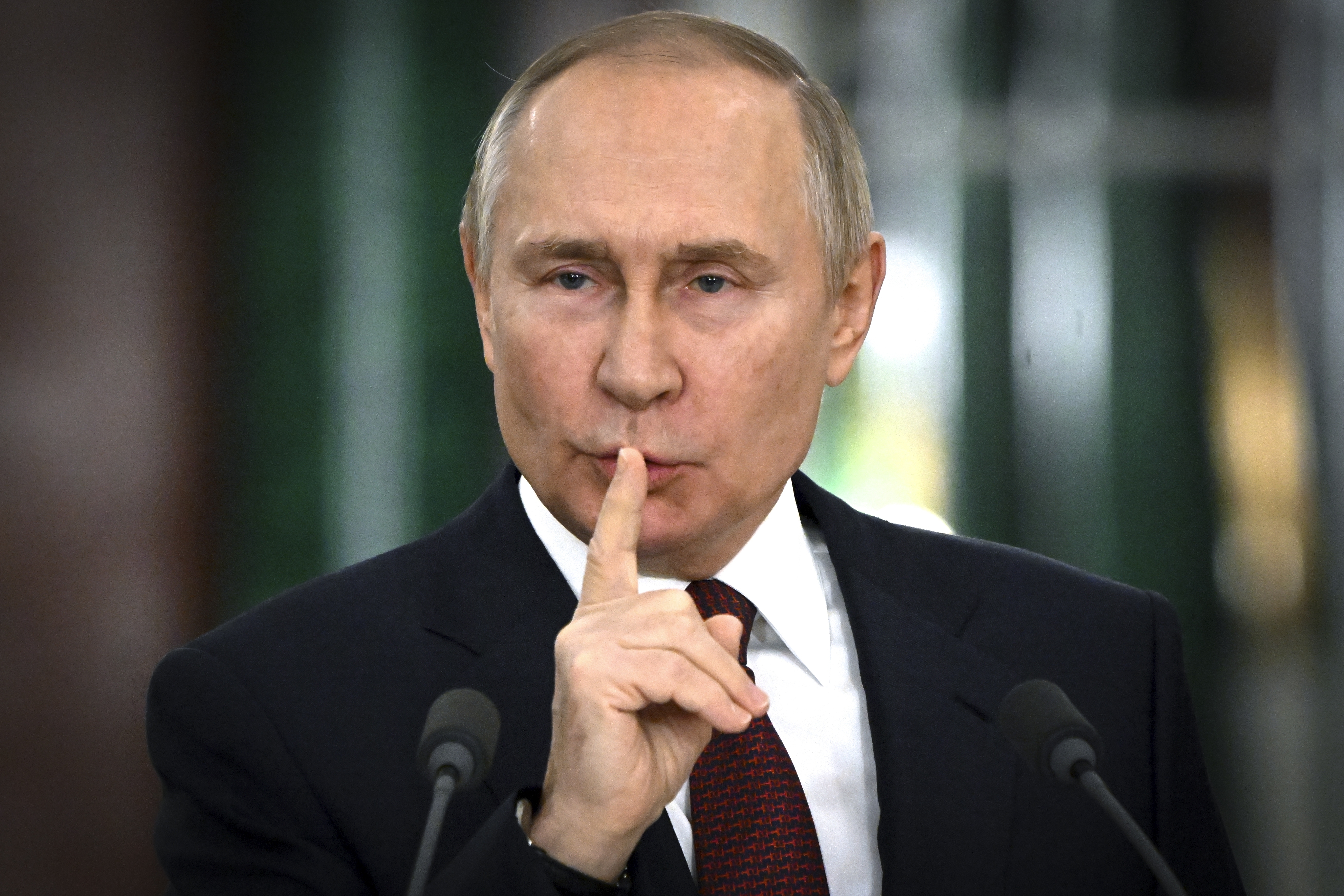
According to Stanovaya, there is no hope that Putin will cut his losses and leave Ukraine. Cornered and resentful, he is convinced he has no choice but to try to crush what he sees as an unacceptable threat to Russia: a pro-NATO government in Kiev, she said. In Putin’s worldview, the West bears full responsibility for starting the war, and ending the conflict is realistically possible only if Western countries stop supporting Ukraine.
“Putin and the Russian elite see this war as existential. If Russia loses, if there are strikes against Crimea, I think it is psychologically ready to use nuclear weapons,” Stanovaya said. “Putin thinks he has given Ukraine too much time to arm itself. Now he believes that if he does nothing, then in a few years Russia will cease to exist. The only thing he regrets is that he didn’t start the war sooner.”
Source: Times
Source: Kathimerini
Anna White is a journalist at 247 News Reel, where she writes on world news and current events. She is known for her insightful analysis and compelling storytelling. Anna’s articles have been widely read and shared, earning her a reputation as a talented and respected journalist. She delivers in-depth and accurate understanding of the world’s most pressing issues.